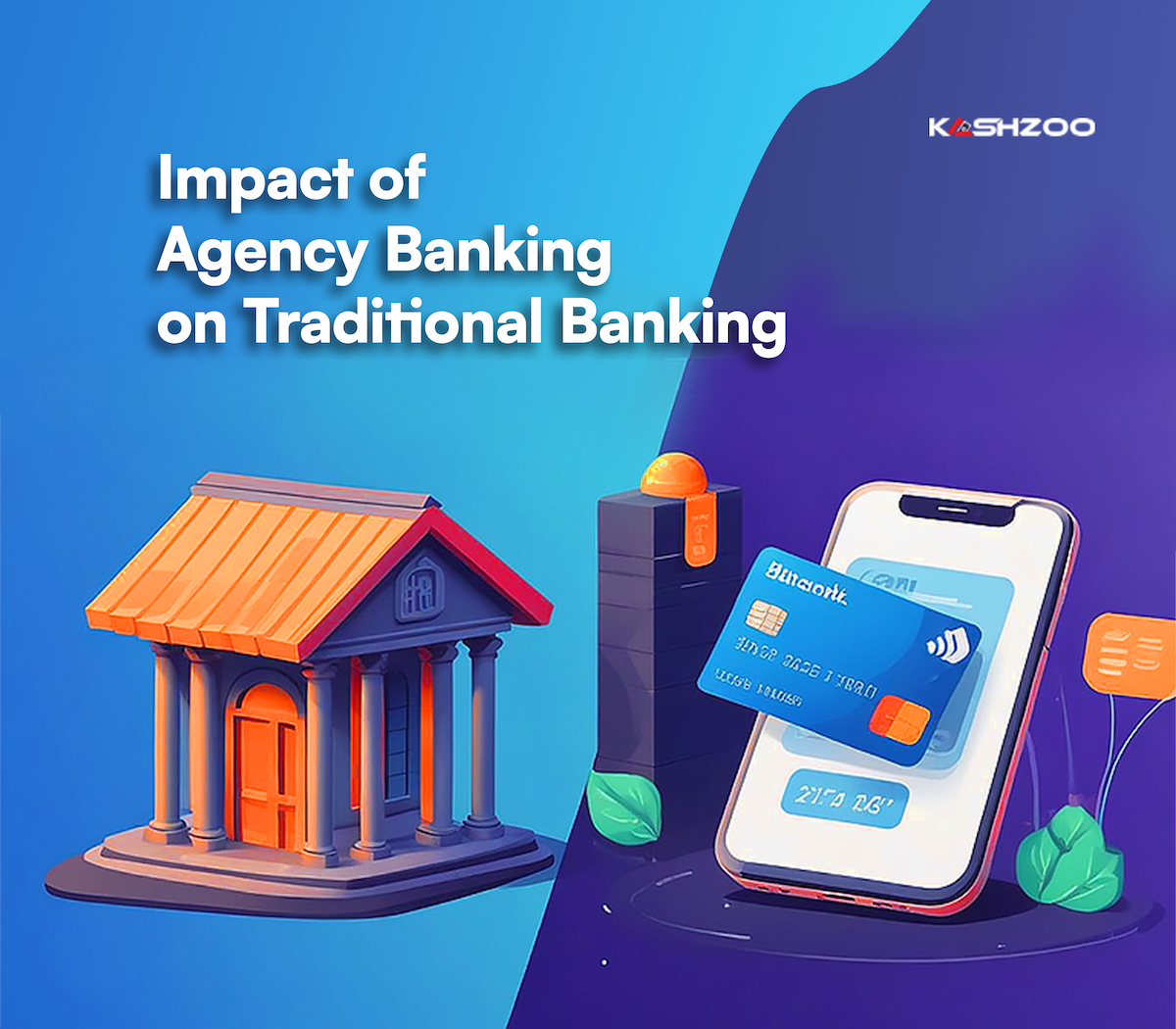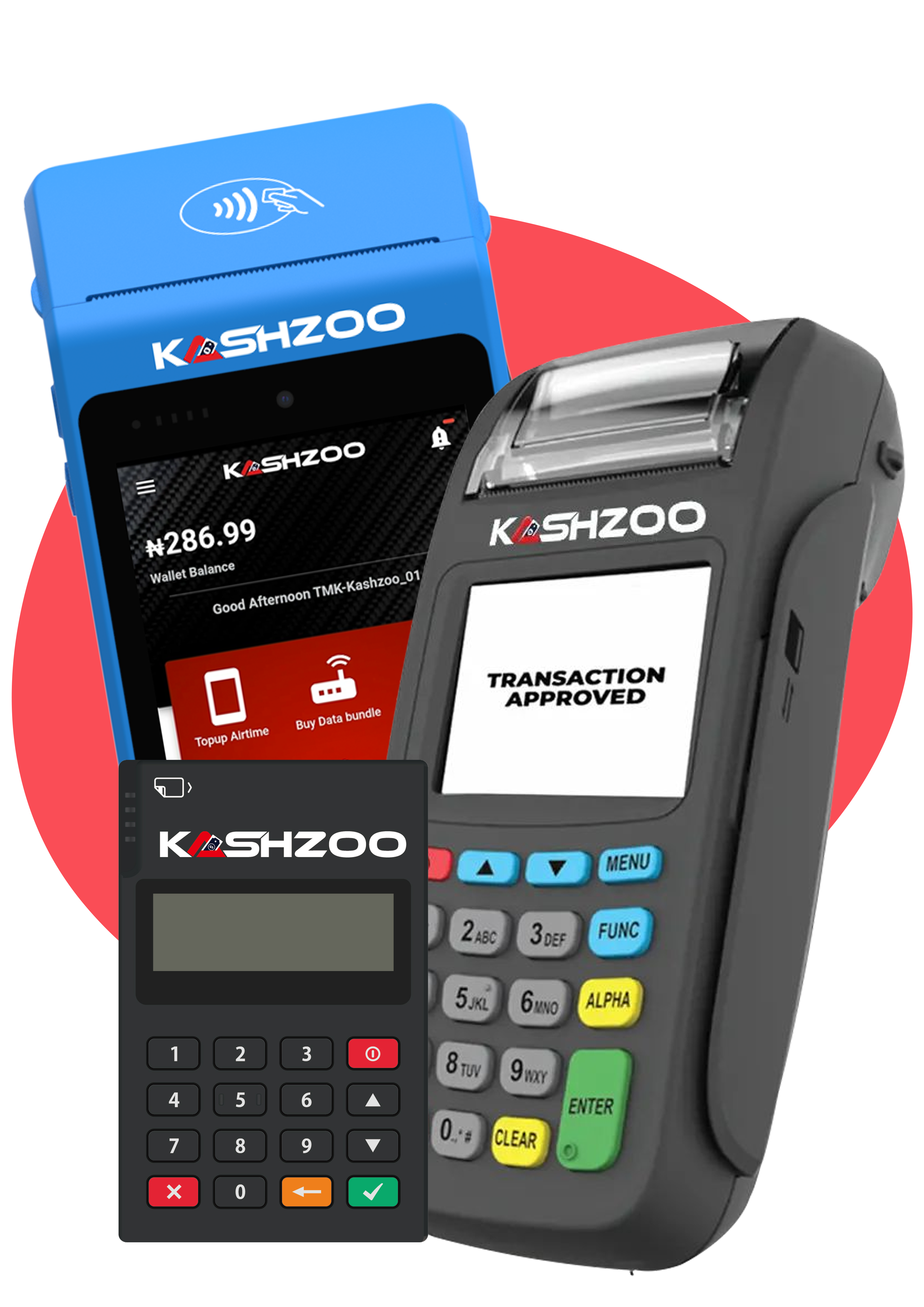Over a decade ago, the advancement of information and Technology (ICT) facilitated the innovative rise of agency banking. It has since redefined the Nigerian banking industry. Ultimately, the evolving innovation has greatly altered traditional banking stressful procedures. Customers have easy and quick access to banking services courtesy of agency banking, which engages the services of a third party to bring financial services closer to the unbanked.
This article discusses the impact (in both ways) of agency banking on traditional banking.
What is Agency Banking?
Agency banking is the innovative approach of leveraging third parties to extend banking services to areas where traditional banks have no physical presence. Agent bankers like Kashzoo agents offer withdrawal, deposit, and bill payment services, among other services, to customers at more convenient locations.
What is traditional banking?
Traditional banks are the core of the financial system in Nigeria and elsewhere. They have provided services such as accepting deposits, withdrawals, payments, credit, loans, safekeeping, foreign exchange and investments before and after the advent of agency banking.
What are the differences between agency and traditional banking?
- While agency banking is flexible with decentralised operations, traditional banking has a centralised system with fixed locations and staff.
- Agency banking offers basic financial services such as withdrawals, deposits, bill payments, transfers, and account balance enquiries. Traditional banks offer the same basic services, including wealth management, mortgages, loans, and investment products.
- While traditional banks are concentrated in urban and suburban areas, agency banking can be found anywhere, especially in remote places without physical banks.
- Agency banking has a lower operating cost, making it cost-effective for agents and customers. Meanwhile, traditional banking has a higher operating cost due to government policies, investments in technological equipment, staffing, rent, and other bills it incurs.
- Traditional banks provide quality customer experience supported by bank policies and procedures. Meanwhile, agency banking customer experience depends on the level of agent training, which often leads to inconsistencies and customer dissatisfaction.
Impact of Agency Banking on Traditional Banking
The impacts of agency banking are evident in traditional banking. We will explore both the positive and the other impacts below;
- Expanding Reach and Accessibility: One of the major benefits of agency banking is the extension of banking services to the unbanked in rural areas, as traditional banks may not be able to open branches there. Local businesses and individuals are contracted as agents, making it easy for people to carry out transactions. Agency banking bridges this gap by bringing banking services to the doorsteps of these underserved communities. This increased accessibility empowers individuals to participate in the formal financial system, promoting savings, investments, and overall economic growth. Furthermore, by utilising local businesses as agents, banks can leverage existing community trust and infrastructure, facilitating a smoother integration of banking services into daily life.
- Operational Cost Reduction: Establishing and maintaining physical branches is expensive for traditional banks. Agency Banking offers a cost-efficient alternative and allows banks to expand their reach without the substantial capital expenditure associated with branch infrastructure. This model reduces operational costs, enabling the offering of competitive services and better interest rates. As a result, traditional banks can allocate resources more effectively, and focus on enhancing customer experience and developing innovative financial products.
- Enhanced Customer Convenience: Customers can conduct transactions conveniently without travelling long distances and waiting hours. Customer convenience improves customer satisfaction and increases the frequency of banking transactions, fostering a culture of regular financial activity. Greater customer convenience and satisfaction reduce traditional banks’ wait hours, making bank staff more efficient and thorough in their operations.
- Promoting Financial Inclusion: Agency banking has played a significant role in successfully promoting financial inclusion in Nigeria. A greater number of Nigerians have easy and quick access to financial services. This increased access has significantly expanded traditional banks’ customer base. As a result, traditional banks have a broader market presence and enhanced customer engagement, leading to high financial activity and stability in the banking sector.
- Driving Digital Transformation: The transition to financial digital services is linked to agency banking because so many agents conduct transactions via online and mobile platforms, thereby increasing the number of people using digital banking. This has encouraged traditional banks to invest in digital technologies to ensure integration and efficient operations.
- Increased Competition and Innovation: The growth of agency banking has increased healthy competition in the financial world. Traditional banks compete not only with themselves but also with fintech companies. The competitive pressure encourages continuous improvement and the development of modern financial products and services tailored to meet diverse customer needs.
- Impact on Traditional Bank Branches: The rise of agency banking has led to a reevaluation of the role of traditional bank branches. While some might fear that agency banking will render physical branches obsolete, the reality is more nuanced. Instead of replacing branches, agency banking complements them by extending their reach. Traditional branches will likely evolve, focusing more on providing high-value services, personalised financial advice, and complex transactions that require direct interaction with bank staff.
Challenges and Risks
While agency banking offers numerous benefits, it also presents challenges and risks that need to be addressed. One of the primary concerns is the security and reliability of transactions conducted through agents. Ensuring that agents adhere to strict operational standards and safeguarding customer data are critical to maintaining trust in the system. Additionally, there is a risk of fraudulent activities if agents are not adequately supervised and regulated.
Our Take
In conclusion, agency banking increases accessibility and reduces expenses, but it also has drawbacks, including effects on traditional banking infrastructure, customer relationships, and regulatory compliance. We believe that maintaining a balance between these elements is important to agency banking’s long-term incorporation into the more extensive financial system.




What do you think?
It is nice to know your opinion. Leave a comment.